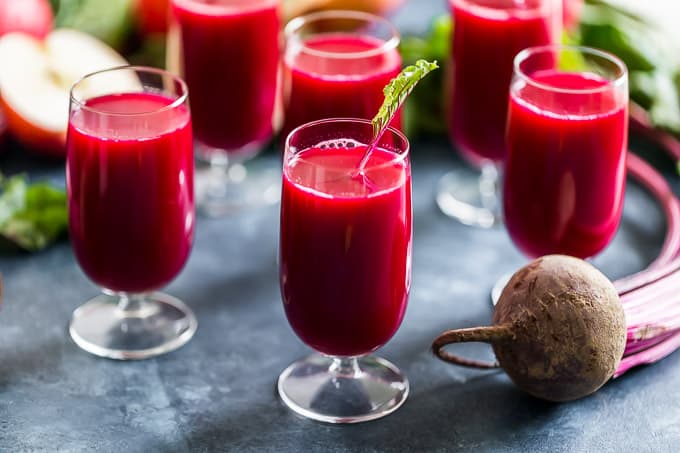Heads up, UK youth—there’s a new health trend on the rise. Recent coverage points to beetroot juice as a powerhouse for energy, performance, and even mindset. In today’s hustle culture, this could be the low-effort upgrade your routine needs.
Boosting Energy & Blunting Afternoon Slumps
A recent article reports that daily beetroot juice offers a consistent energy boost—minus the coffee jitters. Readers shared experiences of beating post-class or post-work fatigue, noticing clearer skin and steadier focus . Considering many young adults rely on caffeine or sugary snacks to get through the day, beetroot is emerging as a game-changer.
Performance Without the Gym Bros
Studies confirm beet juice delivers more than just feel-good vibes:
- Better blood flow & lower blood pressure: Nitrates in the juice transform into nitric oxide, opening blood vessels and easing the heart’s job.
- Increased endurance: Whether you’re doing house chores or long runs, beet juice helps your muscles use oxygen more efficiently, delaying fatigue .
- Faster recovery: Anti-inflammatory betalains soothed muscle soreness in athletes, promoting quicker bouncebacks from intense workouts .
Even if you’re not logging gym hours, this means more energy, less burnout, and serious daily performance boosts.
What It Means for You
Youth on the Move
For students juggling deadlines, lectures, and part-time gigs, a simple gust of beet juice could be the energy hack they need. Picture this: ditching the sugar spike, staying sharp during uni lectures, hustling through shifts, or catching that evening class without hitting the wall.
Health on Repeat
Beet juice supports liver and heart health, fights inflammation, and even promotes better brain blood flow—an eye-opener for young health-conscious consumers seeking longevity, not quick fixes .
Things to Watch Out For
Despite the hype, let’s keep it real:
- Blood pressure warnings: If you’re on BP meds or already have low blood pressure, check with your doc before adding beet juice to your routine .
- Kidney stone caution: High oxalate levels in beet juice can be risky if you’re prone to kidney stones. Moderation is key.
- Blood sugar spikes: While the sugar content in juice is natural, it can still affect glucose levels, so it’s important to enjoy juice mindfully and in moderation
Inside the Science Lab
Meta-studies show solid—but not life-changing—enhancements:
- Endurance: Slight improvements in VO₂max (oxygen uptake) were observed, especially among non-athletes. Hyped athletes might notice less, but average folks could feel it during workouts or sports .
- Lactate tolerance: Beet juice helps your muscles clear lactic acid faster, so you don’t cramp mid-sprint or during late-night gigs .
And don’t overlook antioxidants: Beet juice ranks high in betalains, offering superior protection against oxidative stress compared to other juices .
How to Make Beet Juice Work for You
- Timing: Drink 30–90 minutes before studying, workouts, or late-evening shifts.
- Dosage: Studies suggest 500–1000 mg nitrate (about 1–2 cups) for noticeable benefits .
- Balance: Don’t replace real meals. Add fruit or celery to cut the earthy taste and add fiber (if whole).
- Cycle Smart: Maybe go daily for a few weeks, then take a break. Your body should adapt, not depend.
Final Word: Beet It to Beat It
Beetroot juice isn’t magic—but it is powerful. For UK youth seeking natural boosts, it’s a budget-friendly, scientifically backed hack to amplify energy, sharpen focus, and bounce back from stress. And when work, study, and life feel like they’re stacking up, it’s the simple twist they didn’t know they needed.
So here’s a callout: blend up that beet juice, drink it before your next long shift or study block, and feel the difference. No flashy supplements. No caffeine crash. Just a root that roots for your rise.
https://www.menshealth.com/uk/nutrition/food-drink/a64927866/beetroot-juice-performance-benefits
https://insidesuccessmagazine.com/category/health
Zita Salum, a British, Tanzanian journalist with a London heart, is making waves in the world of media. Born and Raised in Hackney London, she discovered her passion for storytelling at a young age. Her journey began as an admin for the Inside Success magazine, but her talent quickly shone through. Zita's ability to craft compelling narratives and her knack for capturing the essence of a story led her to become an editor for the magazine.
From there, her career soared. Zita has contributed to a diverse range of publications, including the prestigious W magazine, showcasing her versatility as a writer. Her expertise spans across industries such as music, corporate, political, sports, arts, and fashion. Beyond her written work, Zita has also excelled in broadcast journalism. Her natural ability to connect with interviewees and her engaging hosting style have made her a sought-after talent in the industry.
In her free time, Zita is a dedicated networker, attending industry events and immersing herself in the latest trends. She is also passionate about investigative journalism and has produced creative documentaries that shed light on important issues. With her talent, drive, and unwavering commitment to her craft, Zita Salum is undoubtedly a rising star in the world of journalism.




Leave a Reply
You must be logged in to post a comment.